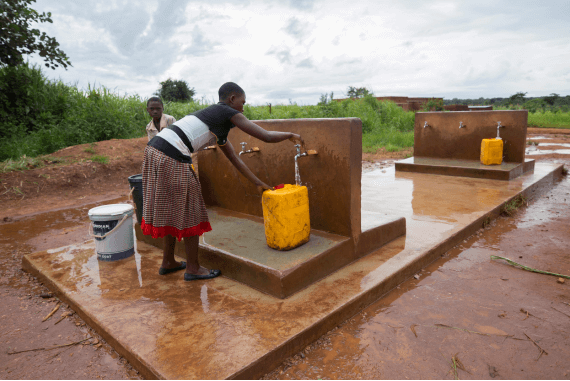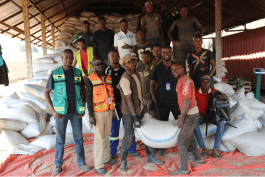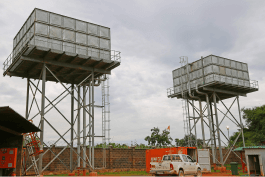Sustainable Development

TFM actively contributes to the sustainable development of society through well-defined actions.
Sustainable Development
We are committed to the sustainable development of communities within our mining concession.
A comprehensive economic development program has been implemented for local communities, aiming to ensure their economic well-being.
We intervene in four specific areas
Education and Capacity Building
We are committed to improving access to quality education and enhancing individuals' skills within communities. This involves implementing innovative educational programs, professional training, and skill-building sessions to enable community members to realize their educational and professional goals.
Access to Savings and Credit
We facilitate access to essential financial services such as savings accounts, loans, and micro-credits for community members. By providing financial solutions tailored to local needs, we aim to promote savings, stimulate entrepreneurship, and foster economic development within communities.
Construction of Production and Conservation Infrastructure
We invest in the construction and improvement of infrastructure necessary for the production, processing, and conservation of natural resources. This includes building facilities such as warehouses, dryers, irrigation systems, and waste treatment facilities to optimize production processes and ensure resource sustainability.
Agriculture (Crop and Livestock Production)
We support agricultural development by promoting sustainable farming practices and strengthening the capacities of local farmers. This includes providing agricultural training, high-quality seeds, effective breeding techniques, and market access. By investing in agriculture, we aim to improve food security, increase farmer incomes, and promote sustainable land and natural resource use.
In parallel, we work to raise awareness and train local farmers in agricultural and financial techniques.
A maize credit program has been established to finance their agricultural activities, while storage infrastructure has been erected to facilitate the sale of their food products.
This assistance has significantly increased production yields, as evidenced by maize, whose yield has increased from 800 kg to 6,000 kg/ha.


Education
Furthermore, we recognize the crucial importance of education for the overall development of communities. Thus, we have implemented vocational training programs tailored to local needs, offering youth and adults the opportunity to acquire sought-after technical and professional skills in the job market.
In parallel, we organize educational and community events to promote the importance of education and encourage active participation of parents and community members in the educational process.
This holistic approach demonstrates our commitment to act as a catalyst for positive change, placing both sustainable development and education at the heart of our community development initiatives.


